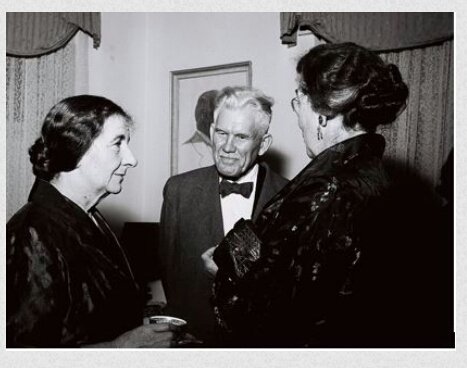Dr. Walter C. Lowdermilk: An Environmentalist Zionist A True Force In History For Zionism & Environmentalism.
Since the return of the Jewish people to the Land of Israel, a once unhabitual wasteland filled with malaria-infested swamps, harsh desert and barren landscapes had bloomed into thousands of acres of prime agricultural property, urban modernity and an environment where the Jewish people could thrive. What has occurred in the Land of Israel over the past one-hundred and twenty years is nothing short of a modern-day miracle. Jewish leaders, pioneers, and ordinary citizens of this era should be revered, between the 1900s and the 1940s is when the Jewish people set their sights on development; though they could not have done it alone, they received a little help from their friends. Dr. Walter C. Lowdermilk, an American Christian Zionist, was one of these true Friends of Zion.
In the mid-1930s, the need arose for responsible water management in the British Mandate of Palestine. While the founder of modern political Zionism Theodor Herzl had envisioned the possibilities that would bring hydroelectric power to the people of the future Jewish state, his ideas were still in relevance twenty-five years after his death. In his 1902 book “Altneuland,” Herzl believed that the Jordan River and the Mediterranean Sea would collectively power the country. While Herzl’s plan did not commence into reality, his design would influence other minds to strategize Israel’s water system. Dr. Walter C. Lowdermilk was one of these minds, whom would come to the Land of Israel to lead the way.
Dr. Walter C. Lowdermilk
Born in Liberty, North Carolina, his family would move a few times and eventually resettle in Arizona. Walter graduated from the University of Arizona, and later graduating from Oxford University as a Rhodes Scholar. In 1922, Lowdermilk would follow his new bride Inez to China, where she had previously been a missionary there before their marriage. Walter would go on to teach forestry and famine protection at the American University, Nanking, though they returned to the United States due to the Chinese Communist revolution in 1927. Walter then continued his studies at the University of California and become a Doctor in forestry, with minors in soil science and geology.
As the United States started to invest in more science-based projects in the 1930s, Lowdermilk received more opportunities and was able to be a frontiersman in his field. He established experimental stations in erosion studies, designed and supervised a center in California to study forest hydrology, and in 1935 became the assistant chief of the Soil Conservation Service. After studying European soil conservation methods in the late 1930s, Lowdermilk toured the Middle East and foresaw what most could not imagine, creating institutions that would allow Palestine to support a large civilian population. His perspective that the land could maintain millions more civilians than previous thought inspired him to write a passionate dissent of the 1939 White Papers. A document put out by the British government to heavily reduce Jewish immigration to land and disavow their commitment in the 1917 Balfour Declaration to a Jewish state in the Land of Israel, appeasing the Arab community of British Mandatory Palestine.
Dr. Walter C. Lowdermilk’s foresight into the future of the Land of Israel was published in his 1944 best seller Palestine: Land of Promise. His vision advocated utilizing the Negev Desert, connecting to the Jordan River for hydroelectric power and drinking water, suggesting that the Sea of Galilee could be the country’s national reservoir by building several irrigation aqueducts to regions with fertile soils. He also outlined possibilities to build a canal from the Mediterranean Sea to the Dead Sea for hydroelectric power. Lowdermilk’s insight and inventiveness would be used in models for years to come, not to mention that his best-selling book caught the attention of American leaders. He used this opportunity to advocate a homeland for the Jewish people as well as advocating that a Jewish state was in the interest of the United States.
In 1950, Dr. Walter C. Lowdermilk returned to the Land of Israel after a sabbatical assisting in soil and water conservation projects in North Africa, African British colonies, and Japan. He became a consultant to the Israeli government and a visiting professor at Technion University in Haifa, Israel between 1955-1957. Dr. Walter C. Lowdermilk’s name might not be as popular as other famous Christian Zionists, but his impact was great. His vision of what a Jewish state in Palestine could be, the environmental institutions she would need to sustain a major population, plus his 1944 best seller Palestine: Land of Promise and the inspiration the book gave to American lawmakers. Without Dr. Lowdermilk, Israel would not be the agricultural leader she is today, a field that has given Israel more of an ability to make allies in the world.
golda
Dr. Walter C. Lowdermilk is featured in the Friends of Zion Museum as a Visionary. His vision of what Palestine could be, his insight of bringing cutting edge soil and water conservation technology to Jewish pioneers developing the land, and his steadfast connection to the Jewish state after her establishment, really proved that Lowdermilk was put on this Earth to sustain and improve her. He is a true friend of Zion and we are proud to be able to educate our guests as well as our 40 million social media followers about this legendary figure.